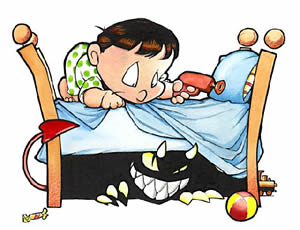This life-self-world is constantly changing forever. Like the flowing river, never as it was the moment before.
But if you are asking whether, seeing the illusion of abiding self, one is done, "fully enlightened", a finished product like a cake popping out of the oven ... I would say no.
This is much as a hike up a mountain where suddenly one may realize that mountain and hiking and hiker are one all along ... yet the hike up and down the mountain must continue in order to realize hiker, mountain and hike. One does not merely rest on one's laurels. Mountain-hiker-hike may just be experienced as Buddha-Buddhaing-Buddha ... but still the hike continues and is a continuing matter of ups and downs, constantly changing scenery, spectacular vistas and poison ivy, sometimes reaching the peak and sometimes tripping and falling in the mud.
Perhaps many of the old Buddhist and Zen story book legends misled students to believe that ... in a flash ... one was "enlightened" ... what had to be done now done. Baloney. Most Zen Buddhist folks I know ... Rinzai folks, Soto folks ... will tell ya it ain't quite so simple. In a timeless instant ... a snap of the fingers ... one may realize Emptiness, beyond me and you and love and hate and lack and gain and coming and going. A nice place to visit, but one cannot live there. That beginingless view is only where the real work begins, because it is simultaneously this world of me and you and love and hate and lack and gain and coming and going.
Gassho, J
But if you are asking whether, seeing the illusion of abiding self, one is done, "fully enlightened", a finished product like a cake popping out of the oven ... I would say no.
This is much as a hike up a mountain where suddenly one may realize that mountain and hiking and hiker are one all along ... yet the hike up and down the mountain must continue in order to realize hiker, mountain and hike. One does not merely rest on one's laurels. Mountain-hiker-hike may just be experienced as Buddha-Buddhaing-Buddha ... but still the hike continues and is a continuing matter of ups and downs, constantly changing scenery, spectacular vistas and poison ivy, sometimes reaching the peak and sometimes tripping and falling in the mud.
Perhaps many of the old Buddhist and Zen story book legends misled students to believe that ... in a flash ... one was "enlightened" ... what had to be done now done. Baloney. Most Zen Buddhist folks I know ... Rinzai folks, Soto folks ... will tell ya it ain't quite so simple. In a timeless instant ... a snap of the fingers ... one may realize Emptiness, beyond me and you and love and hate and lack and gain and coming and going. A nice place to visit, but one cannot live there. That beginingless view is only where the real work begins, because it is simultaneously this world of me and you and love and hate and lack and gain and coming and going.
Gassho, J
 ). He discovered another realm beyond lack and time and birth and death etc. which we call "Big B" Buddha (the Dharmakhaya, as opposed to the historical Buddha who was born and got old and died).
). He discovered another realm beyond lack and time and birth and death etc. which we call "Big B" Buddha (the Dharmakhaya, as opposed to the historical Buddha who was born and got old and died). 
 One does sit so ... and is sitting sat so ... on the Zafu/
One does sit so ... and is sitting sat so ... on the Zafu/



Comment